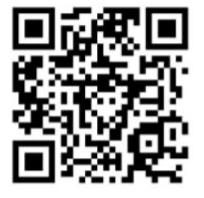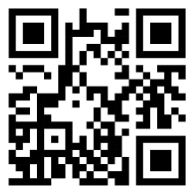An Instructive Guide to Finding a Career After Graduation
Elizabeth Smith, Contributor
On Friday, September 20, the Career Hub liaison Peter Hoffmann held a presentation for the graduating class of 2024 on some practical and important tips for pursuing a career after college. Hoffman’s debriefing addressed the reality of life after college and the stresses of finding a job upon graduation and offered some helpful advice on what to expect when entering the workforce. Hoffman, a dedicated member of the Career Hub crew at USM for two years and counting, provided a number of useful insights, as well as personal anecdotes to success, to help students transition smoothly into meaningful careers. This article will highlight some of the guidelines discussed and will seek to provide the graduating class of 2024 with some key information to help them prepare for the throes of the workforce.
Hoffman kicked off the presentation with a few ways to narrow down a career by asking students first to think about themselves.
“First, do some ‘soul searching,’” Hoffman says – while it is certainly corny, taking a specific amount of time to reflect on yourself and write down your interests will help determine what matters to you most. Additionally, this self-assessment will reveal to you some of your strengths and weaknesses. A good resource to help guide this process is the CliftonStrengths Test, Hoffman says (see QR code). “While it may not reveal anything new [about yourself] that you didn’t know before, sometimes it’s good to have a professional platform to tell you exactly what you are,” says the career hub liaison.

CliftonStrengths Test
Next, Hoffman advises, determine your motivators – the people and things in your life that motivate you and why. This may be money, status, or power; while these are wonderful and valid aspirations to possess, many of us are not motivated particularly by these alone. What a lot of us aspire for is to live comfortably, have a happy relationship and friends, and to do the things that we love every day. Whatever it is that motivates you, utilize that information to determine what you should do for a career. What gets you up in the morning? What is it you love? Is it money? Is it a healthy relationship? Is it your kid? Is it traveling? Asking yourself these questions will reveal what matters to you most and what does not matter at all, helping you more effectively choose a career based on your interests.
Knowing what you would be good at can be difficult to determine for a lot of us. In light of this, a third tip Hoffman proposes is to ask for “360
-degree feedback.” The 360 degrees refers to the people all around you – your colleagues, boss, family, friends, and partner. The term 360-degree feedback, therefore, refers to the feedback we receive from the people closest to us. This feedback is sometimes the most honest. For example, “Say you’re looking for a job as a nurse,” says Hoffman. “If nine out of ten people from your circle say ‘dude, maybe not you,’” it may be time to reconsider your future career.” Since feedback like this can be interpreted as critical, this may be an intimidating method for gaining insight into your future career. However, 360-degree feedback is one of the easiest and most effective ways of ruling out careers while also getting an objective, outside perspective of who you are. It’s simple, easy, and will help you so much in the long run. Too often, individuals enter careers after deluding themselves that they would do well in that career or that it is a good fit for them. Difficult though it may be, exposing yourself to the opinions of friends, family, and the people you trust most is integral to understanding your strengths and weaknesses, and paramount to avoiding a career you dread.
A fourth more straightforward point that Hoffman makes is that, when exploring career options, you should always look for something related to your major. At this point in the game, unless you absolutely abhor your degree, the smart thing to do is to stick with your major. Specializing in the field you went to college for is key. This is smart for a number of reasons, but mainly so that you don’t waste more time and money.
Finally, Hoffman leaves off with a few last thoughts f
or the graduating class of 2024.
Do your research: First, and perhaps most obvious, Hoffman advises that students conduct research on the careers available to them based on their major. You can conduct this research in a number of ways, by googling information and browsing the web, or by going to O*NET OnLine. “O*NET OnLine,” says Hoffman, “is a research tool for [exploring] different careers [and] different opportunities for your major, to literally break down for you what the career expectations are [and to figure out] what that job looks like on a day-to-day basis.” Additionally, Hoffman says that it’s a good place for individuals to go who are afraid to ask “stupid questions” – a statement he follows up with by saying: “there are only stupid people – not stupid questions.” For more information about O*NET OnLine, scan the QR code below.

O*NET OnLine
Network: Another way to “get your foot in the door” with regard to a career is through networking, says. Networking is a process by which students connect with others to build relationships that will establish them in their field of interest. An easy way of doing this is by going to as many on-campus events as possible, career-related or otherwise, and asking people questions. You never know who you might meet. Don’t be afraid to initiate conversations and talk to counselors, advisors, professors, friends, colleagues, and classmates – “Just talk to people!” the career liaison urges. Ask the advisors in your field, and others with connections to your area of interest, how they got to where they are today. You may be surpris
ed at what making connections like this can do for you. By putting yourself out there and taking the initiative, you will develop a reputation that will take you far.
Meet with a career hub advisor: Finally, an underused resource available to all students at USM is the Career Hub, located on the second floor of the McGoldrick Center on the Portland campus in room 210. Here, Hoffman says, you can set up an appointment to meet with a Career Hub advisor and they will answer questions and offer guidance on things like how to write a resume, how to network to find jobs, and how to effectively answer interview questions. This is a big one for young professionals, as a good interview can determine if you’re qualified or not. Career advisors can help answer any questions you may have, but here are a few important tips to keep in mind when it comes to interviews.
Approaching an interview
- Ask questions at the end of the interview to show that you not only listened but are invested in the company’s vision. Ask questions that you truly want answers to and follow up with your own, authentic responses.
- Instead of discussing salary on the first interview, wait for the second or third. If the interviewer asks you to give a number, tell them you’d like to see if it’s a good fit first before you decide on pay.
- Be as honest and genuine as you can. Be an attentive listener, respond thoughtfully, and be honest with your input and responses.
- Also, don’t apply to something you might not be qualified for, not only is it uncomfortable for you but it may result in you bombing the interview.
- When asked what your weaknesses are, tell them about something you used to struggle with but overcame, demonstrating to the interviewer that you are stronger and an asset to the team.
For many students, transitioning out of college into a career is not an easy task but the USM Career Hub is a dynamic resource that will help guide you every step of the way. We hope that this article operates as a catalyst for students to be proactive about the career-finding process and to spread awareness about the numerous resources USM has to offer. The Career Hub is committed to students because the more you know about the road ahead, the better prepared you will be to find, solidify, and launch into a fulfilling and meaningful career.
